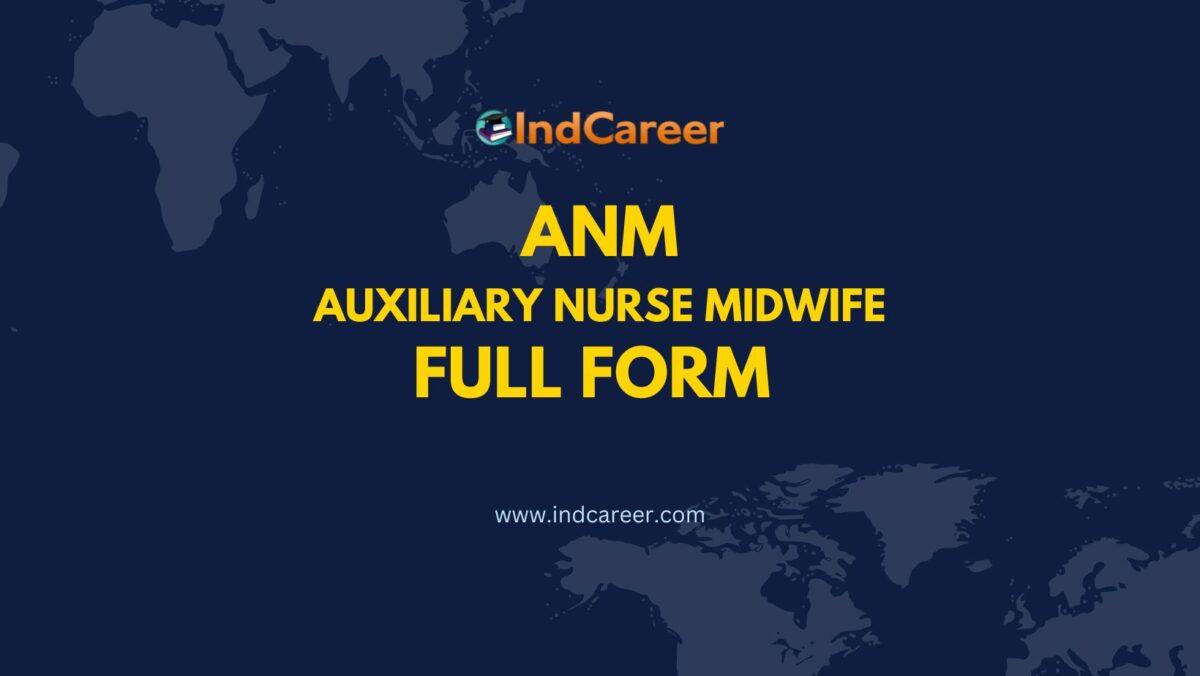Contents
An Auxiliary Nurse Midwife (ANM) is an important healthcare professional who plays a crucial role in providing primary healthcare services, especially in rural areas. In this article, we will explore the full form of ANM and delve into the details of this profession.
What does ANM stand for?
ANM stands for Auxiliary Nurse Midwife. It is a diploma course that trains individuals to become skilled healthcare workers capable of providing basic medical care. ANMs primarily work in healthcare centers, sub-centers, and hospitals, and their roles include assisting in childbirth, providing antenatal and postnatal care, administering vaccinations, and promoting healthcare awareness in communities.
ANM course details
Eligibility criteria for ANM
To pursue ANM, one must meet certain eligibility criteria. In most cases, candidates should have completed their 10+2 education from a recognized board. However, specific eligibility requirements may vary between states and institutions offering the course.
Duration of ANM course
The duration of the ANM course is generally 2 years, including both theoretical and practical training. The curriculum covers subjects related to nursing, midwifery, community health, medical-surgical nursing, and more.
ANM syllabus
The ANM syllabus is designed to equip students with the necessary knowledge and skills to work as healthcare professionals. Some of the topics covered include:
- Basic anatomy and physiology
- Maternal and child healthcare
- Community healthcare nursing
- Pharmacology
- First aid and emergency care
ANM job opportunities
After completing the ANM course, graduates have various job opportunities in the healthcare sector.
Government job options
Graduates can find employment in government hospitals, primary health centers, and community health centers. They can work as ANMs, staff nurses, or healthcare supervisors. These roles involve providing medical assistance, conducting health camps, and promoting community healthcare initiatives.
Private job options
The private healthcare sector also offers job opportunities for ANMs. Private hospitals, nursing homes, and healthcare organizations hire ANMs for roles such as healthcare coordinators, nurse assistants, or home healthcare providers.
ANM salary
Salary range for ANM
The salary of ANMs may vary depending on factors such as experience, location, and type of employer. On average, ANMs in India can earn between INR 15,000 to INR 25,000 per month. With experience and further qualifications, the salary can increase.
ANM course benefits
Practical experience
ANM courses provide students with ample practical experience through internships and on-the-job training. This hands-on experience helps them develop essential skills required for their future roles.
Contribution to healthcare
By pursuing a career as an ANM, individuals can make a significant contribution to healthcare, particularly in rural and underserved areas. They become instrumental in improving maternal and child healthcare, promoting healthcare awareness, and preventing the spread of diseases.
Conclusion
In conclusion, ANM stands for Auxiliary Nurse Midwife and represents a vital healthcare profession in India. ANMs play a crucial role in providing primary healthcare services, especially in rural areas. The ANM course equips individuals with the necessary skills and knowledge to offer essential medical care and contribute to healthcare initiatives. With various job opportunities and a positive impact on society, pursuing a career as an ANM can be a rewarding choice for Indian college students.
Frequently Asked Questions (FAQs)
The ANM course can be pursued immediately after completing the 10+2 education or after graduation in a relevant field.
Yes, the ANM course is open to both males and females. The course provides equal opportunities for individuals interested in pursuing a career in healthcare.
Some institutions may conduct entrance exams for admission to the ANM course, while others may have direct admission based on merit or counseling.
ANMs can explore job opportunities abroad, especially in countries with a high demand for healthcare professionals. However, additional certifications and licensing requirements may be necessary.
Yes, after completing the ANM course, individuals can pursue higher education in nursing or related fields. They can opt for courses like General Nursing and Midwifery (GNM) or Bachelor of Science in Nursing (B.Sc Nursing).
